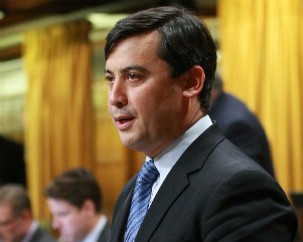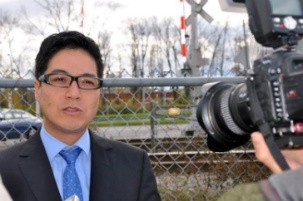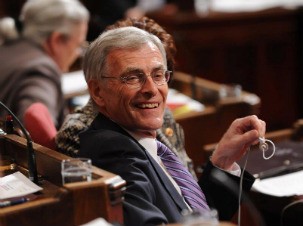Michael Chong: the path to democratic reform
In December 2013, Michael Chong introduced his private member’s bill to Parliament. Among other powers, the bill would give caucus members the ability to oust their leader.
It’s a reform Chong feels strongly about — and one he plans to discuss on May 21, when he visits Concordia.
“For the better part of 30 years, there has been increasing concern about the concentration of power in party leaders’ offices, in particular the Prime Minister’s Office,” he says.
After he was elected in 2004, Chong saw the dangers such centralized power posed. “That only strengthened my resolve to do something about it.”
A co-founder of the Dominion Institute, now part of Historica Canada, Chong admits that much of the content of his Reform Act is based on past practices in Canada.
“Leader review, caucus membership, local control over party candidates — these were all in place in Canada for most of our history,” he says. “A lot of the changes are recent phenomena.”
But some of the changes proposed in the Act have been brought up before. As Chong explains, these include a part of the bill that would remove a party leader’s power to veto a candidate.
“That actually was something that former prime minister John Turner had been asking for for decades.”
Democratic reform has been promised by leaders and politicians in the past, and then left on the campaign trail, Chong says.
“I said, ‘Okay, enough is enough. We've been talking about this, and nothing has happened. It's probably worse than ever. If you really believe that there's a problem, pass the bill.’ ”
That may happen soon enough. The first Parliamentary debate about the Reform Act is scheduled to take place in the House of Commons on May 26, only five days after Chong’s appearance at the university.
“This workshop is coming right at the right time, because I think attention on the bill is going to increase as we move toward that first hour of debate,” he says.
Michael Chong’s talk “Democratic Reform: Some Realistic Possibilities” takes place on May 21 at 6 p.m. Register today.

 Courtesy of the House of Commons
Courtesy of the House of Commons
 Courtesy of Hoang Mai
Courtesy of Hoang Mai
 Courtesy of James Cowan
Courtesy of James Cowan